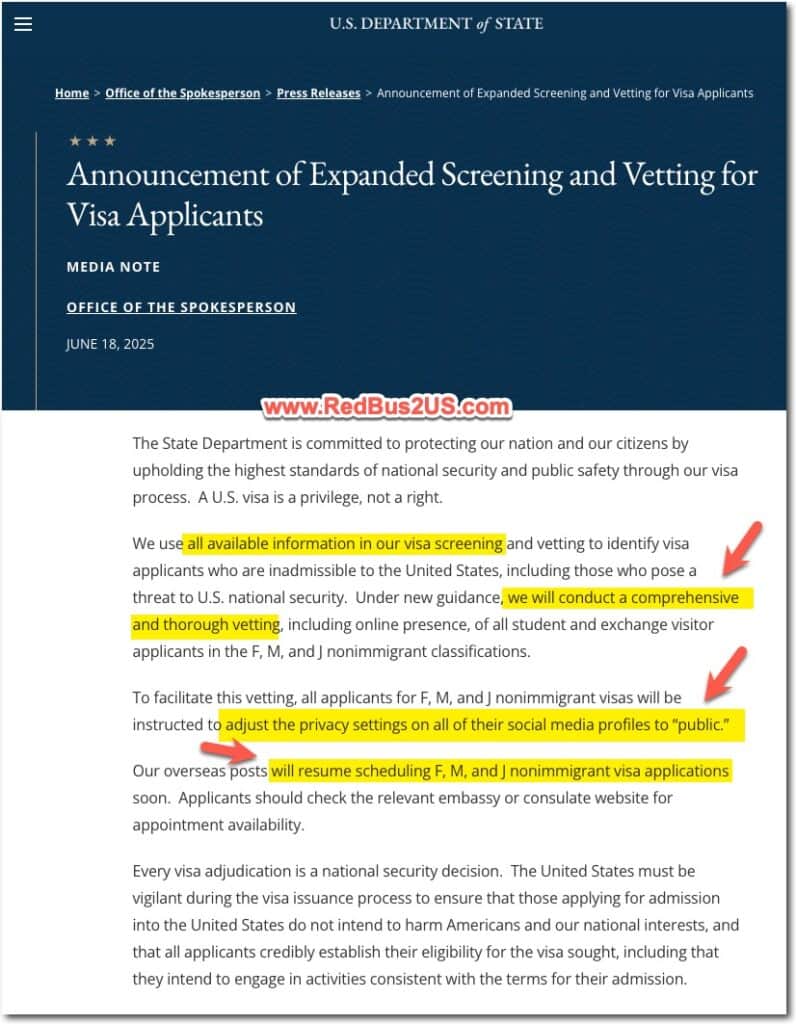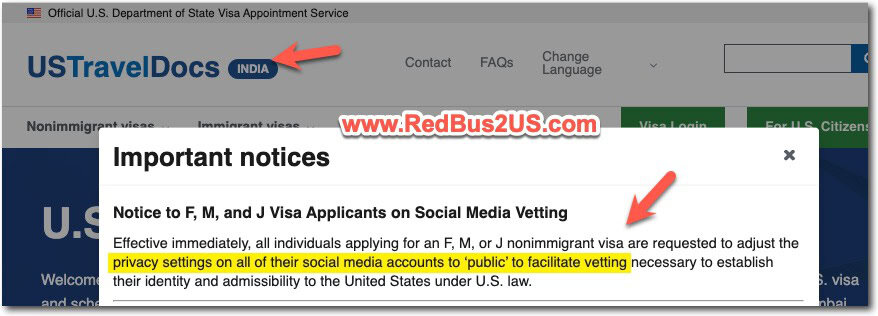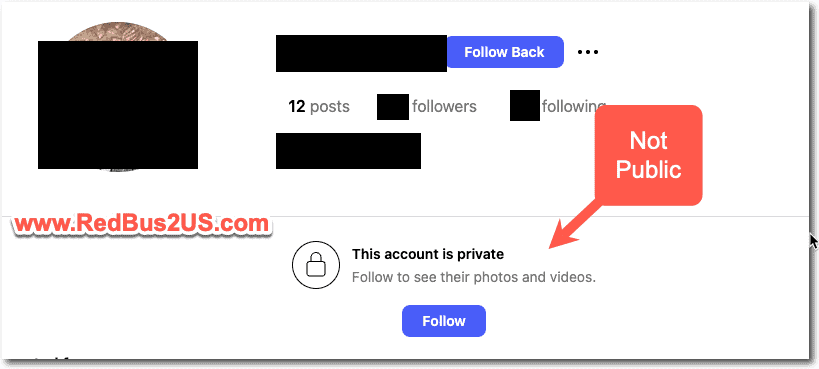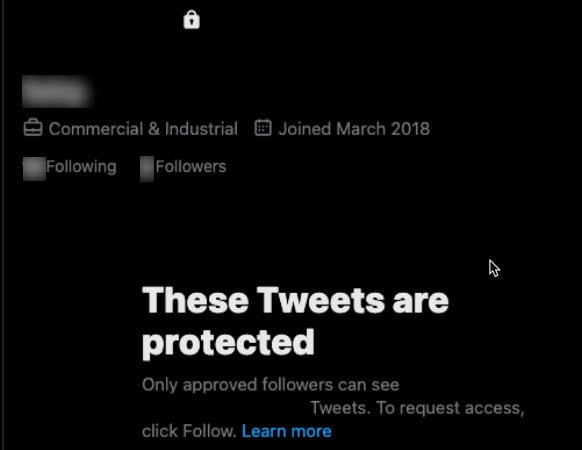Many international students planning to study in the US have been stuck in limbo due to the pause in Student Visa Appointments (F, M Visas) since late May 2025. In a big relief to those prospective international students, the US Department of State announced on June 18th that they are resuming the F and M Visa appointments across US Visa Consulates and Embassies effective immediately.
In this article, we will review the full summary of the news update from the US Department of State and other information that was circulated to the US Consular Officers in an internal cable, including common FAQs and what students must do to stay compliant.
Before diving into the actual update, let’s briefly look at what has happened so far.
Background: Pause in F, M, and J Visa Appointments since May
Below is a brief background on what has happened regarding the pause in F, M, and J visa appointments:
- Politico News reported on May 27th, 2025, that F, M, and J visa appointments for prospective international students were suspended. It was later confirmed by other news outlets and US Department of State Officials.
- The main reason that the US Department of State stated was to prepare themself for the expansion of social media screening and vetting of prospective international student applicants, who apply for an F1, M or J Visa.
- Since then, prospective students have been waiting curiously for an update from the US Department of State.
F, M, and J Visa Appointments Open, More Vetting for Visa Applicants
The US Department of State made an official announcement on June 18th, 2025, indicating the launch of expanded screening and vetting for F, M, and J Visa Applicants & opening of appointments. Below are the key takeaways from the same:
- The US Department of State will use all the available information for its Visa screening and vetting process to identify visa applicants who may not be allowed to enter the US.
- As per the new guidance, they will do a much more detailed and stricter vetting of student and exchange visitor(SEVIS) program’s F, M and J Visa applicants’ online social media presence.
- To do the extra vetting, all the F, M and J visa applicants are instructed to change their privacy settings of all of their social media profiles to be “public”. As you know, all US Visa applicants must fill out the Social Media Profile info on DS-160 application.
- All the overseas US Consulates and US Embassies will resume scheduling of F, M and J visa applicants soon. The applicants should check their country’s US embassy or US consulate for the availability of appointments.
- They say that every visa decision is a national security decision and all visa applicants must establish that they are eligible for a visa and must engage in activities that are in-line with their terms of admission into the US for studying.
Below is the screenshot of the Official Press release on State.Gov

USTravelDocs.com Alert – Social Media Vetting for F, M, and J applicants
The USTravelDocs.com website across all the countries is showing an alert under the “Important Notices” popup that comes when you select the nonimmigrant visas section titled “Notice to F, M, and J Visa Applicants on Social Media Vetting”
- As per the alert, you must change the privacy setting of all your social media profiles to “public”, so that the consular officer can do the extra screening and vetting to establish your identity and credibility to enter the US on a student visa.
- If you do not change the privacy settings, then it may impact your Student Visa approval chances, as the consular officer cannot verify your social media information for vetting purposes.
Below is the screenshot of the exact message that appears on the USTravelDocs.com Website for India:

Social Media Vetting Info from Official Cable Sent to US Consulates & Embassies
Few credible news outlets such as the Washington Post got hold of an internal cable(official document) that was sent to the US Embassies and Consulates across the world on how the consular officer should do the social media vetting and what they should consider. Below are the key points from the cable:
- The US Visa officers will need to assess the Student Visa applicants’ information to
- Find applicants who show hate or anger towards America, its culture, its people, its government, or its value system.
- Find applicants who help or support any terrorist organization that pose a threat to the U.S National Security.
- Find applicants who take part in illegal antisemitic behavior or get involved in such violence.
- Based on their discretion on overall assessment, the applicants may be denied visa, if they are found one or more of these.
- If applicants do not have their social media profiles “public”, it maybe considered as an effort to hide activity and may result in denial of visa.
- The new guidance on Social media vetting is applicable for all new applicants and current students who go for visa renewals.
- In prioritizing the student visa appointments for expedited criteria, US consulates should give preference where the foreign students in the university are less than 15% of the total student population in that school.
You can read more about the cable-related information as reported in articles written by the Washington Post News, FreePress News Article, Time News Article.
What must Student Visa Applicants do? What is not allowed?
If you are a prospective F1 Visa applicant, who is planning to attend a US Visa interview, you must first ensure that all your Social Media Profiles are public and accessible. Below are some examples of what is not allowed.
For instance, in Instagram, if your profile is private, it will appear like this

In Twitter, if you see the below that says “These tweets are protected,” this is considered private.

Depending on the social media platform, the private may look different. You, as the student visa applicant, must keep the URL that you put in when you fill in the DS-160. Social Media information should be public and accessible. Anyone should be able to read the information in that public URL.
Common FAQs
It is applicable for everyone, including current students, who apply for Dropbox Stamping during renewal.
As of June 19th, 2025, there are no new questions asked in the DS-160 application. This may change in the next few weeks if they implement new things. Stay tuned for updates.
You, as the applicant, should not really do anything that alters your social media profile. Just deleting and making it empty may create more questions to the Visa officer.
No, there is no official guidance on what they will look for and how they will analyse. All we have is that they will do thorough vetting about your views towards America, its values, system and your role in helping anyone who are a national threat to America.
At the moment, it is applicable mainly for F, M and J visa holders. In the future they may, we do not know.
What do you think of the news announcement? Will the vetting really help? Share your thoughts in comments section below.

Tera baap kabhi Amerika gaya hai kya zhadoo marne ke liye?